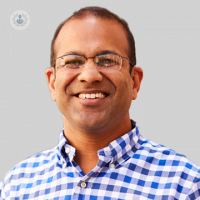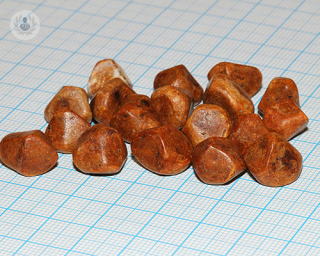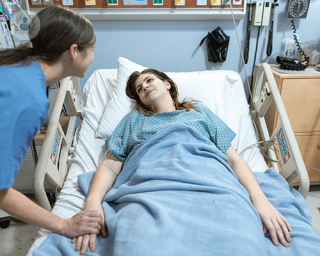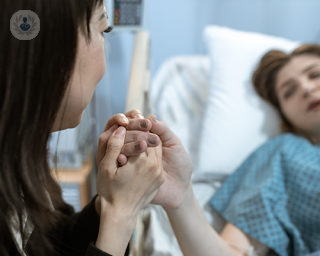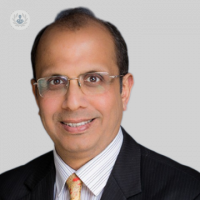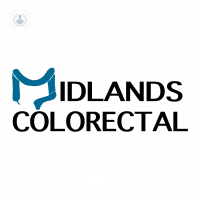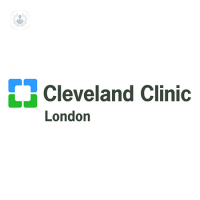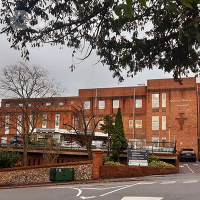Gallstones
Professor Hemant Kocher - Surgery
Created on: 11-13-2012
Updated on: 10-04-2023
Edited by: Carlota Pano
What are gallstones?
Gallstones are hard lumps or stones, usually made of cholesterol or sometimes other substances like bilirubin that form in the gallbladder. These stones develop gradually over several years and can be as small as a grain of sand or as big as a pebble. There are usually several stones present at once, however, in some cases only one stone will form.
The gallbladder is a small organ underneath the liver which releases bile (produced by the liver but stored and concentrated in the gallbladder) into the digestive system to help the body break down fats into fatty acids for absorption.
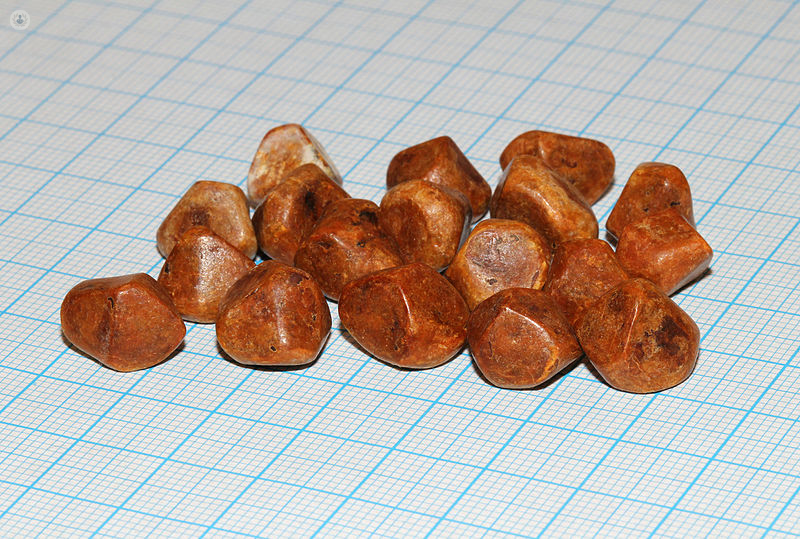
What are the symptoms?
Gallstones don’t always produce symptoms and don't always need treating. In fact, the vast majority of people will not experience symptoms as the gallstones themselves don't cause pain.
In certain circumstances however, a gallstone might become trapped, causing intense pain known as biliary colic. The pain usually starts in the upper right part of the abdomen and radiates to the shoulder.
Further complications can arise whereby the gallbladder becomes inflamed - symptoms can include jaundice (a yellowing of the eyes and skin), fever, persistent pain, nausea, and vomiting.
What causes gallstones?
The development of gallstones is thought to be due to too much cholesterol or bilirubin in the bile, leading to the formation of stones. In the majority of cases, gallstones are made of cholesterol, however if the liver is producing too much bilirubin (often due to damage) this can result in the formation of stones also.
Improper emptying of the gallbladder is also thought to cause stones, as the bile becomes too concentrated.
How are gallstones diagnosed?
When you visit a GP regarding symptoms of gallstones, they may carry out a Murphy's sign test to see if the gallbladder is inflamed. As part of this test, the GP will place their hand or fingers on the upper-right area of the tummy and ask you to breathe in. If this feels painful, it is a sign that the gallbladder is inflamed and you may need urgent treatment.
The GP may also recommend blood tests to check for infections or to check that the liver is functioning correctly. If the tests suggest that you have gallstones, you will probably be referred to for other tests. These tests include an ultrasound, CT scan and MRI.
Another test to further determine the condition of your gallbladder is a cholangiography. It uses a dye which shows up on X-rays. This dye may be injected into the bloodstream or directly into the bile. The dye will be absorbed if the gallbladder and bile systems are working properly, but if this isn´t the case and a blockage is detected, then the doctor may try to remove it using an endoscope. This is known as an endoscopic retrograde cholangio-pancreatography (ERCP).
What are the risk factors for gallstones?
There are some people who are more likely to develop gallstones than others.
This includes people who:
- are over the age of 40
- are female
- have a family history of gallstones
- have diabetes
- are obese
- are fasting
- suffer from intestinal diseases such as Crohn´s disease
- suffer from haemolytic anaemia or cirrhosis of the liver
As well as the above, gallstones may also affect people who:
- are pregnant
- don´t exercise regularly
- are using birth control pills or hormone replacement therapy
- have lost weight rapidly
- have a diet high in fat and cholesterol
- have a diet low in fibre
- take cholesterol-lowering medicine
Gallstones and diet
Development of gallstones is linked to diet, therefore maintaining a healthy diet is essential. It is recommend to eat certain foods, such as:
- Foods of animal origin which contain little cholesterol and a medium-low quantity of fatty acids, such as lean meat, partial or skimmed milk and low-fat fresh cheese.
- Foods containing omega 3, 6 and 9, such as oily fish, seeds and eggs.
- Products rich in fibre, such as fruits and vegetables.
- Foods which contain a lot of water, as well as drinking water
Cholesterol in the diet is a major factor contributing to the development of gallstones, therefore it is best to avoid foods high in colesterol. This includes food such as:
- fatty meat and sausages
- butter
- cakes and biscuits
- hard cheese
- foods containing coconut oil
What is the treatment?
Gallstones don’t always need treatment and in many cases the best option is to actively monitor them and only treat them if symptoms appear. If, however, gallstones are causing complications, it might be necessary to treat them immediately. Additionally, patients who have conditions which increase the risk of complications, such as portal hypertension (high blood pressure in the liver), cirrhosis of the liver, or diabetes may need more urgent treatment.
In most cases, keyhole surgery is performed to remove the gallbladder, in an operation known as a cholecystectomy. Following the operation, patients can lead a normal life without the gallbladder as the liver will continue to produce bile. Treatment may also be recommended if a scan demonstrates a high level of calcium in the gallbladder, as this can increase the risk of gallbladder cancer in later life.
If you suffer from episodes of abdominal pain (biliary colic), you will also undergo treatment, depending on how the pain affects daily life. If the pain is mild and doesn´t occur often, you may be prescribed painkillers. If the symptoms occur more often and are more severe, you may have to undergo gallbladder removal surgery.
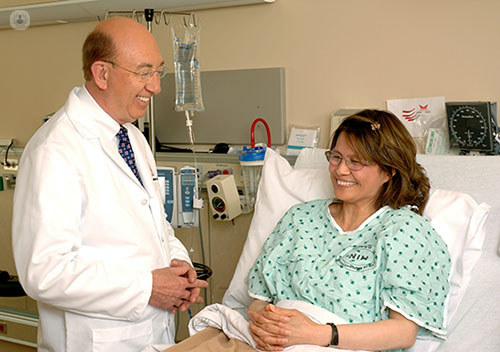
How serious are gallstones?
Gallstones can be serious. If they become lodged in a bile duct, this can cause a blockage, leading to life-threatening problems such as bile duct inflammation and infection, cholecystitis, or pancreatitis. Additionally, if left untreated, the risk of developing gallbladder cancer may be augumented.
It is essential to know the symptoms of gallstones in order to diagnose the condition early and to receive treatment
